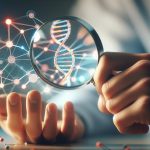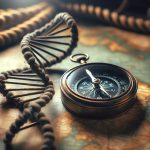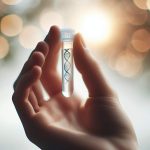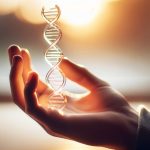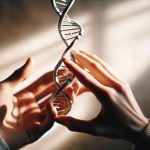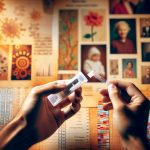Discovering the secrets within your genes can be an eye-opener, yet sometimes it throws you a curveball with confusing or alarming health details. We had a chat with Nargol Faravashi, the brains behind DNA ALLY, who shines a light on navigating the complex world of DNA insights.
What motivated the creation of DNA ALLY?
Recently, there’s been a noticeable uptick in the number of people diving into the world of at-home genetic testing. Many are left scratching their heads, unsure of what their results actually mean or how they could potentially affect their loved ones. This gap in understanding and support sparked the creation of DNA ALLY.
At its core, DNA ALLY is all about adding a personal touch to the often impersonal journey through genetics. We’re here to ease your worries by connecting you with professionals who can shed light on those confusing test outcomes and guide you through your next steps. It’s our mission to transform confusion into clarity with compassion and expert advice, making sure no one feels left out in the cold when it comes to understanding their genetic makeup. With us, navigating genetics becomes less daunting and more empowering.
Why is genetic counseling vital for those undergoing genetic testing?
Genetic counseling is a crucial process for individuals and families navigating the complex world of genetics to understand their health better. These professionals dive deep into one’s family history, looking for signs that might indicate a risk for genetic disorders. They’re not just digging through the past; they’re piecing together a puzzle that can shed light on future risks.
The heart of this journey often involves deciding whether or not to undergo genetic testing. It’s more than just seeking answers; it’s about understanding what those answers could mean. A test doesn’t merely end with results; it opens up a myriad of considerations ranging from grappling with unforeseen ancestry revelations to making sense of what positive or negative health outcomes imply. The ramifications ripple out, affecting not just the individual but their entire support network.
Getting tested is stepping into broader territory where questions like « What now? » loom large. Results could necessitate further exams or adjustments in lifestyle, echoing beyond the person tested, touching relatives near and far.
This whole process isn’t only clinical but deeply personal, shaping how people see themselves and their connections to others around them. It’s about making informed choices in an area where information can significantly alter life trajectories.
What worries exist about at-home DNA tests and their findings for users?

When considering the landscape of at-home genetic testing, it’s crucial to grasp the scope of what these tests can and cannot do. A prime example is 23andMe, a popular choice for many seeking insights into their genetic makeup. However, this test checks for only three specific variants within the BRCA1 and BRCA2 genes, despite there being thousands of known variants associated with an increased risk of cancer.
The genes in question, BRCA1 and BRCA2, play significant roles in determining one’s susceptibility to breast cancer among other cancers. The three variants that 23andMe does screen for are most commonly found in those of Ashkenazi Jewish descent. This focus means that people without this heritage may receive a negative result from the test while still harboring other significant variants in these genes that could elevate their cancer risk.
This brings us to a critical point: getting a negative result on such a limited test might lead individuals to mistakenly believe they’re at no risk for hereditary cancers, giving them unwarranted peace of mind. It underscores the necessity for consumers to understand that these direct-to-consumer tests offer only a snapshot of one’s genetic landscape concerning particular conditions.
It raises concerns about whether customers fully realize that these screenings don’t provide a comprehensive overview but rather target specific genetic markers. Hence, someone with a strong family history or personal suspicion regarding breast cancer might not find what they’re looking for in these direct-to-consumer kits due to their focused nature.
In essence, while home genetic testing kits like those offered by 23andMe can provide valuable information about certain health risks and ancestral background, it’s essential to approach their results with caution and awareness about their limitations. They should not replace professional medical advice or comprehensive genomic testing especially if you have serious concerns based on your family history or personal health indicators.
How does your service operate and what steps do customers need to follow?
Imagine having a personal guide in the maze of genetic health, someone who can make sense of the complex information and help you navigate through your options. That’s exactly what our service offers, akin to the convenience of hailing a ride with Uber, but for genetic counseling. With our platform, a comprehensive network of genetic counselors is at your fingertips any day of the week.
Getting started is as easy as pie. Whether you’re tech-savvy and prefer using an app or more comfortable browsing on a computer, we’ve got you covered. A few clicks and brief questions later, within moments less than taking your morning coffee to brew, you’ll be chatting with a qualified genetic counselor ready to assist with both pre- and post-test guidance.
Our mission revolves around empowering individuals by demystifying their health risks through informed choices about genetic testing. We translate science into actionable insights so that figuring out which test suits best or decoding test outcomes becomes straightforward rather than overwhelming tasks.
By connecting users swiftly with expert genetics professionals capable of interpreting results accurately and suggesting viable next steps based on those findings, we bridge the gap between technical jargon and everyday understanding. This means not only grasping what your genes might imply for your future but also knowing how to move forward confidently with that knowledge in hand.
What happens next after talking to DNA ALLY, including available support and additional information or follow-up meetings?
Our service offers a detailed analysis that sheds light on further aspects of a particular disease, along with recommended actions. Additionally, we provide links to other helpful resources for patients. This report can be conveniently printed and discussed with their doctors to decide on any necessary further medical tests as suggested by the evaluation.
Should there be more questions or concerns, patients have the option to book another session with their genetic counselor or opt for a different one if they prefer. This flexibility ensures that each patient receives personalized guidance tailored to their specific needs and circumstances.
What should people think about before taking a genetic test sold directly to them?
When considering genetic testing, the first step is to clarify your motives. Identifying what you’re looking to discover and understanding the potential outcomes are crucial. It’s essential to grasp which aspects of your health or genetics are under examination and acknowledge any limitations these tests may impose.
Choosing the appropriate test is pivotal, and here’s where a pre-test consultation with a genetic counselor becomes invaluable. Such guidance can steer you towards a more thorough diagnostic exam rather than settling for direct-to-consumer (DTC) options that might not cover all bases.
Direct-to-consumer tests often come with their own set of constraints, highlighting why professional advice is key in selecting the most suitable option. In short, embarking on this journey with a genetic counselor‘s insight sets the stage for informed decision-making right from the get-go.

